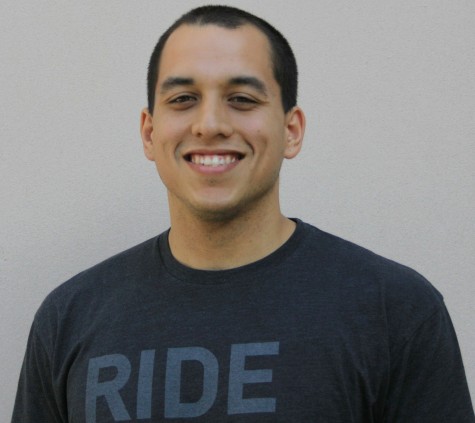Paying the ever-rising prices for college textbooks may seem inevitable for college students. Students often pay more for textbooks than they do for classes, but an instructor at Glendale Community College is trying to change that.
Michael Dulay, Division Chair of Social Sciences and a psychology instructor, is starting a pilot program this summer that will offer E-textbooks to students.
Dulay is working with big textbook publishers like Cengage and Pearson to make this possible. The program will only be for select classes taught by participating instructors in the social sciences department, but Dulay said this is just the beginning.
Although the program promises cheaper prices on textbooks ($30 compared to the average $100), not everyone is convinced the benefits of E-textbooks outweigh the pitfalls.
Ara Corbett, an adjunct English professor, believes that while the program will save students money, the devices on which the students access the text itself may actual hinder learning. In his English classes, Corbett has his students read “The Shallows” by Nicholas Carr, about the effects that the Internet and technology has on our brains.
In his book, Carr explains that computer devices encourage readers to skim texts, obtaining only the most important or relevant information to their task. This skimming doesn’t allow for the thoughtful and often insightful experiences that longer reading does.
Furthermore, Carr explains that devices connected to the Internet offer many distractions, like toolbars with other applications, various updates from email or social media, and Web browsers. Research cited in his book shows that when the mind is overloaded, (with deciding whether or not to click on links and hypertext, or check messages) it is hard for the brain to retain knowledge long-term.
“Books promote a deeper, more concentrated and calm read,” said Corbett.
Corbett believes the physical book itself has more value than a computer version. The infinite information on the Internet tends to homogenize the credibility and importance of information accessed on computers. While the E-textbooks may be beneficial for science courses, nothing can replace the physical book for poetry or other humanities courses.
Sarah Tahmasian, one of Corbett’s English 101 students, says she loves the fact that Corbett doesn’t allow the use of distracting devices (especially cellphones) in the classroom.
“Without the distractions, I feel like the class is encouraged to think more and go into deeper discussions,” said Tahmasian.
Josh Middleton, a 27-year-old history major at GCC, says we have to adapt to new technology. He loves to read and finds e-books to be more convenient than phyical ones.
He likes how he can carry many books at a time on his tablet and can even look the definition of a word up much faster than if he had physical books. While students can search specific passages related to homework or tests, he says it should not supplement the full reading itself.
“It just depends on the type of reader you are,” said Middleton.
It is up to readers if they allow themselves to be distracted or lazy. Technology is progressing fast and the next generation of students are not going to know an alternative to using computers. Middleton believes it is our responsibility to teach them how to use them better.
The new E-textbooks will be available to students through the GCC bookstore, and can be downloaded to allow offline access on a multitude of devices. Dulay is looking into programs to help struggling students who do not have Internet access or devices to download the material.
In his research, 95 percent of students said they have access to the Internet at home and 97 percent have computers.
Eriel Albarran Jr., a floor team leader at GCC’s bookstore, said that while he has not always had the best experiences with Dulay, he is confident that Dulay is trying to help students. In the past Dulay has ordered cheaper books for students at the last minute, preventing the bookstore from getting them to students in time.
Dulay wants GCC students and faculty to band together and lead the state colleges in a move toward cheaper textbooks for students. He is also teaching students, as well as his family, how to moderate technology use.
”We need to evolve into people who can control our technology and not let the technology (or Google) control us,” said Dulay.
Most agree that only time will tell how well the E-textbooks will work for students. This summers’ pilot program should provide some indication of its effects.


